Buying or owning a static caravan or holiday lodge is a fantastic way to enjoy regular breaks. But if you’re new to holiday home ownership, you’ll soon discover a whole world of specialist words and phrases.
From construction terms to park paperwork, we’ve created a handy glossary of the most commonly used static caravan and holiday park jargon to help you feel right at home.
Anchoring
Metal fixings that secure your holiday home to its base for extra stability, especially in exposed or coastal locations.
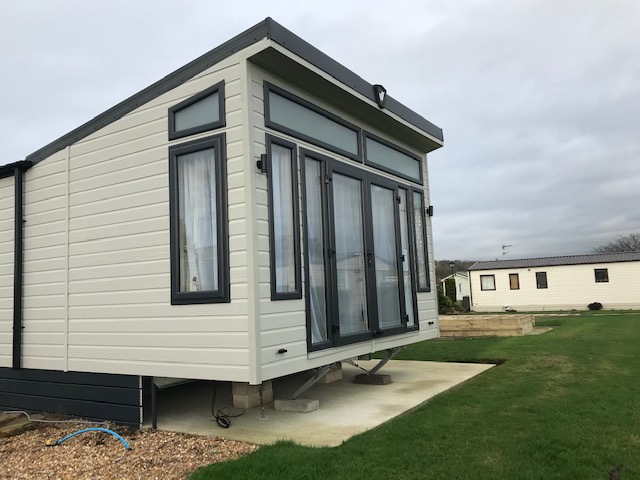
Apex roof
A pitched or peaked roof design found on many static caravans and lodges. It helps with water run-off and creates more internal headroom.
Base
The prepared hardstanding or concrete foundation where your caravan or lodge is sited.
Boiler
Usually powered by LPG or electricity, this provides hot water and central heating in modern holiday caravans.
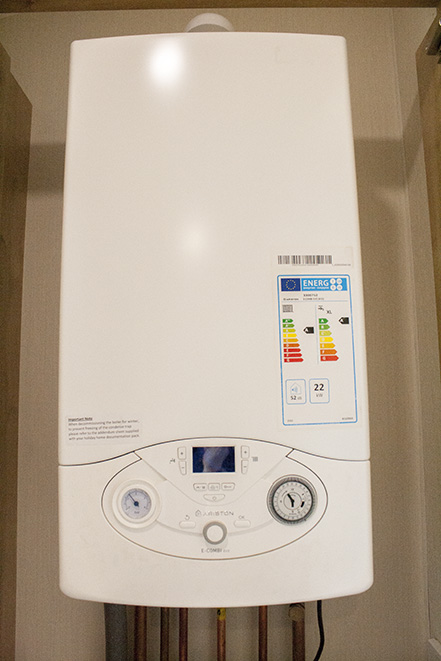
BS 3632
BS3632 is the British Standard to which residential park homes and some holiday lodges are built. They are suitable for all-year-round use and as a permanent residence (depending on the site licence).
Cladding
Cladding is the material that covers the outside of your static caravan or holiday lodge to protect it from the elements, as well as providing insulation and a decorative finish.
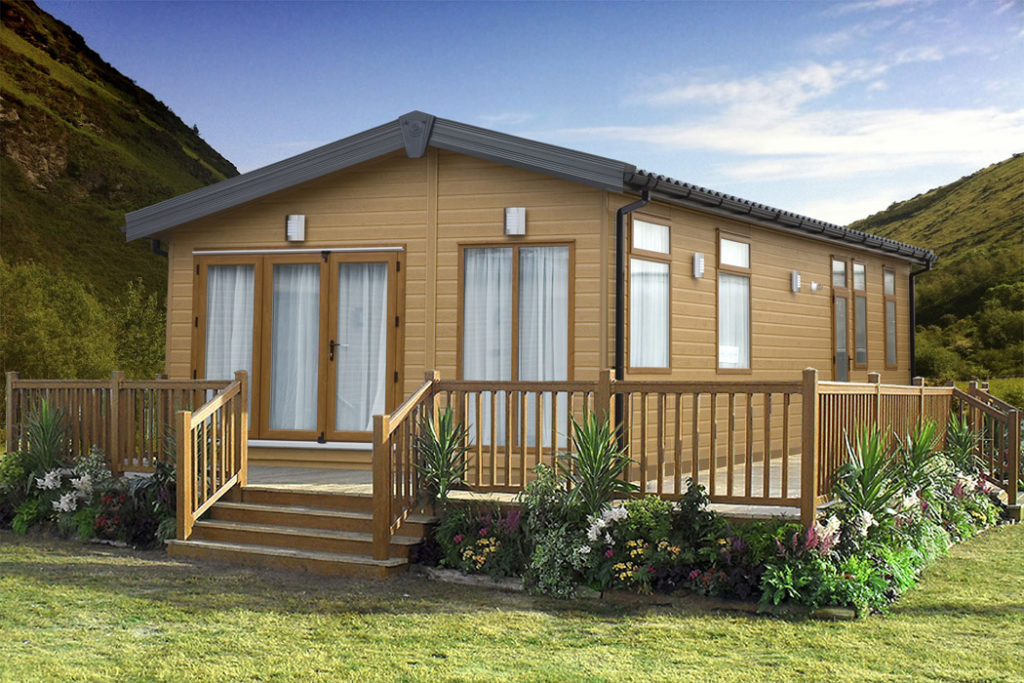
There are various types of cladding, including aluminium cladding, vinyl cladding, CanExel® and timber.
Many static caravans have alumnium cladding as it’s lightweight and available in a choice of colours. Vinyl cladding is more rigid and less prone to damage than aluminium and comes in a textured finish. CanExel® cladding is a durable, painted composite cladding often used on lodges or high end static caravans for a stylish, low-maintenance exterior and its energy efficient properties.
Chassis
The steel frame that supports the holiday home. A galvanised chassis has a protective coating against rust, ideal for coastal parks.
Commissioning
The process of siting, connecting, and setting up your holiday home for the first time.
Decking / Veranda
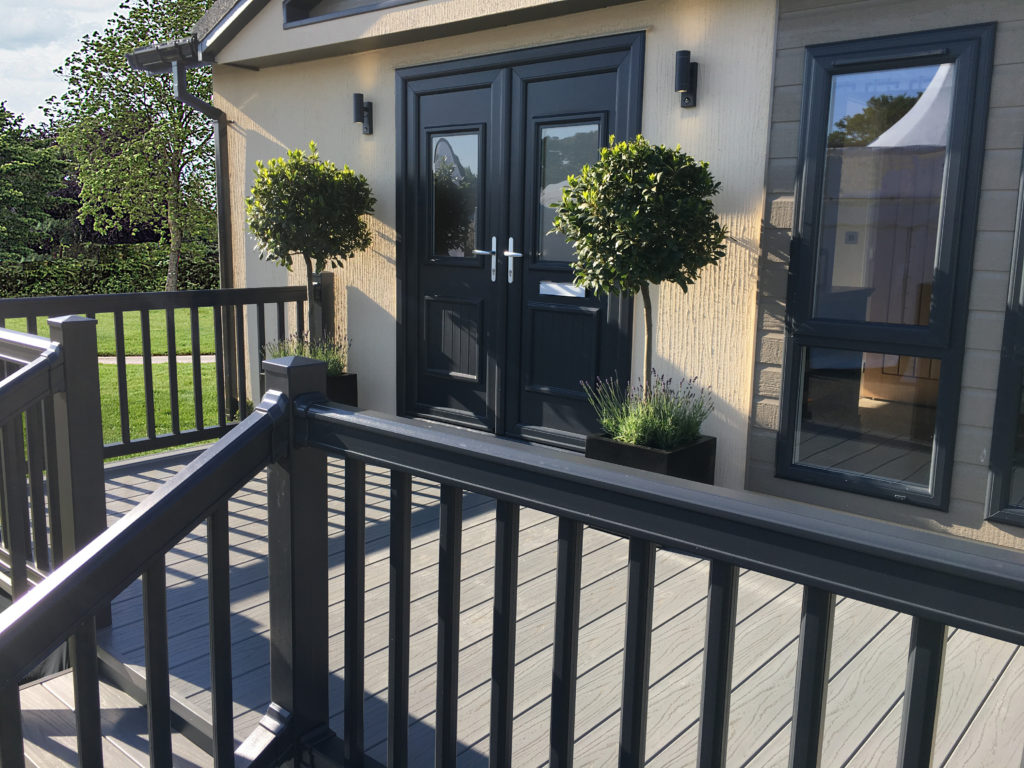
An outdoor platform attached to your holiday home, usually in timber or composite, extending the living space.
Draining down
Draining all water systems to protect your static caravan from frost damage during the winter season. Static caravan insurance policies usually make draining down a condition when your caravan or lodge is left unattended over the winter. As a Leisuredays customer, you can check out our requirements here.
EN1647
EN 1647 is a European build standard. Static caravans built to EN 1647 are designed for seasonal holiday use with moderate insulation levels.
Flotation device
These devices can be fitted to a static caravan in flood-prone areas to enable the caravan to automatically rise and float in the event of a flood and then lower again as floodwaters subside.
Gas bottles / LPG
Liquefied Petroleum Gas is stored in bottles or tanks outside the holiday home for cooking, heating, and hot water.
Handover
The final stage of the buying process when ownership of the caravan or lodge passes to you, including checks and a walkthrough.
Holiday park licence agreement
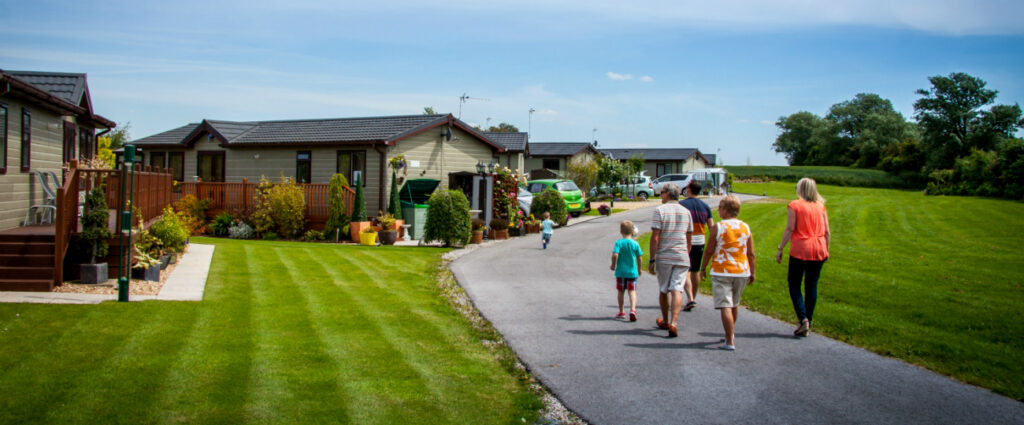
A formal agreement giving you permission to keep your static caravan or holiday lodge on a specific pitch for a set number of years. The agreement will detail the terms and conditions for both parties, including site fees, park rules, the duration of the licence, and the responsibilities of the caravan owner, such as insuring the caravan or lodge.
Insulation
Material in the walls, roof, and floor that helps maintain indoor temperatures. Lodge insulation is usually thicker than standard static caravans as many are built to the aforementioned BS3632 standard.
Jacking points
Reinforced points on the chassis for lifting the unit safely during maintenance or siting.
Lodge
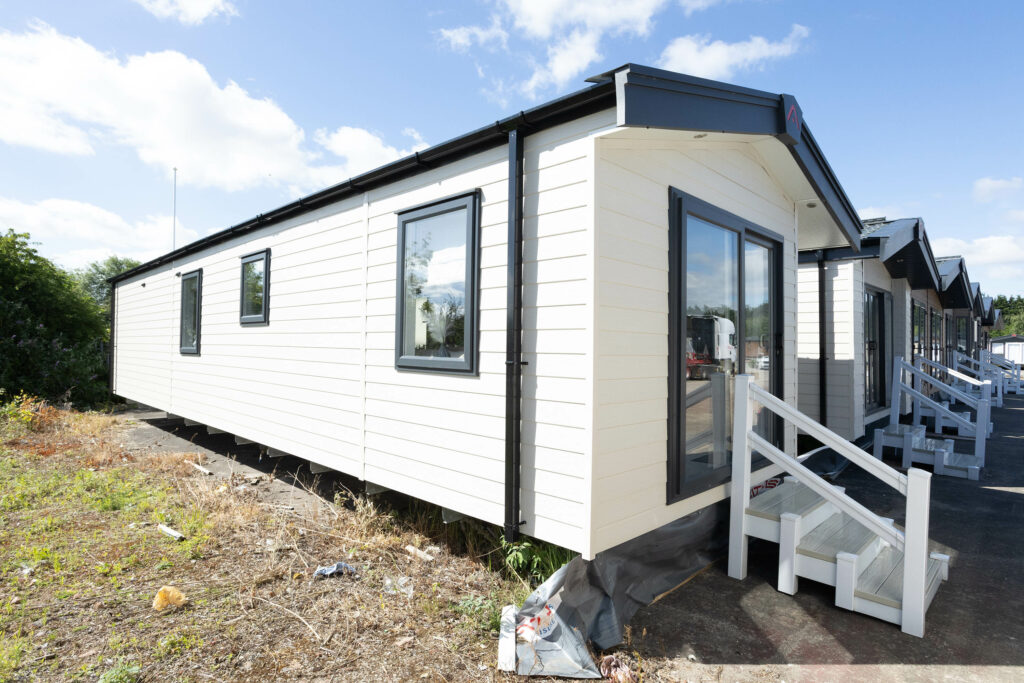
A larger, often more luxurious holiday home, built to BS 3632 residential standard with superior insulation and central heating.
Mains services
This term relates to the water, gas, electric, and sewage connections provided to your caravan.
NCC
The National Caravan Council – the UK trade body for the caravan industry. It oversees safety standards, model approvals, and industry training.
Park rules
Regulations set by the holiday park covering pitch appearance, subletting, pets, speed limits, and general behaviour.
Pitch fees / Site fees
Annual charges paid to the park for ground rent, maintenance of shared facilities, and park services.
Seasonal closure
Many parks close for part of the winter, requiring owners to drain down and secure their holiday caravans and lodges.
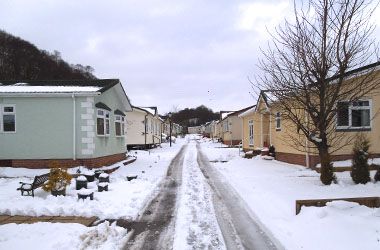
Seals
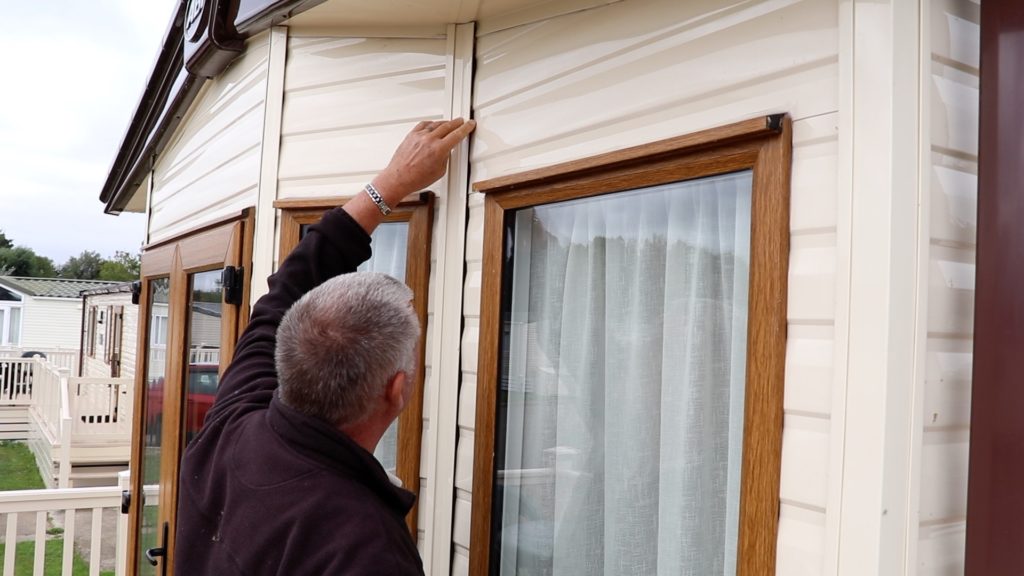
Flexible strips around windows, doors, and joints to prevent water ingress. Should be checked regularly for wear and tear.
Single unit
A static caravan that is usually 12ft wide.
Short-term letting
Renting or hiring out your holiday caravan or lodge to holidaymakers, usually via your park or independently. Make sure your park permits hiring out and take insurance cover that allows for letting and covers damage caused by guests and loss of rental income when your caravan suffers insured damage, which means bookings have to be cancelled.
Siting
The process of transporting, positioning, levelling, and connecting a static caravan or lodge on its pitch.
Skirting
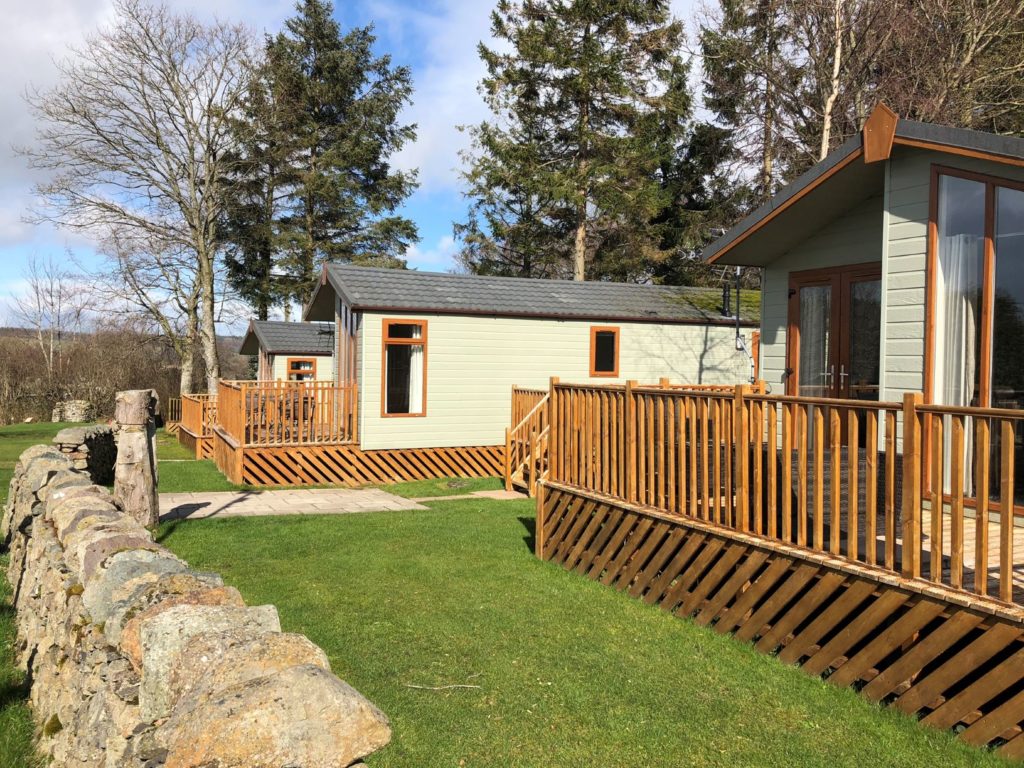
Panels fitted around the bottom of the caravan to hide the chassis, improve insulation, and prevent draughts.
Sublet
Renting your holiday home when you’re not using it. Many parks offer managed schemes, but you’ll need suitable insurance.
Twin unit
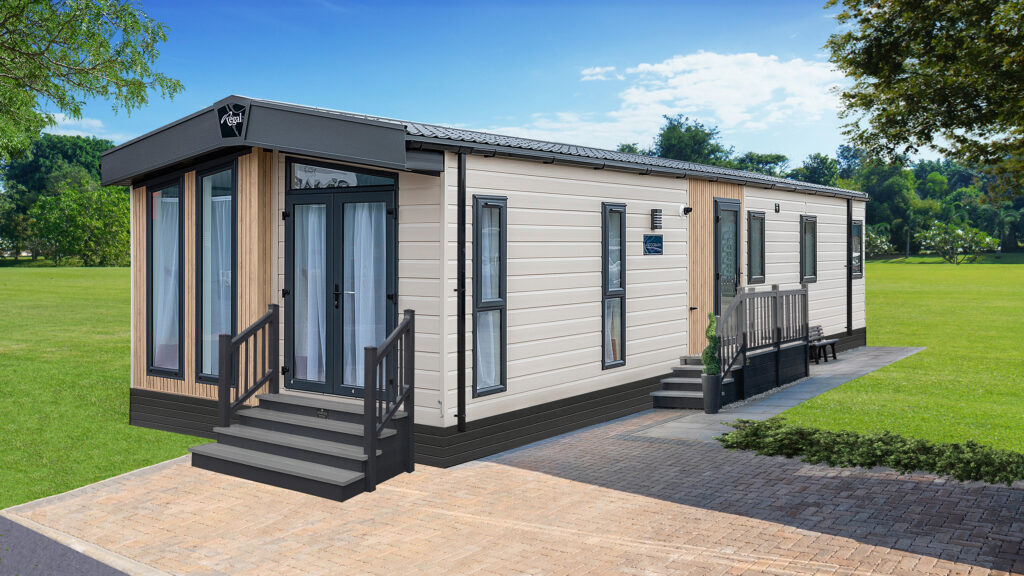
A lodge or holiday home that arrives in two halves and is joined together on-site for a wider layout.
UPVC cladding
A low-maintenance exterior finish commonly used on modern caravans and lodges.
Veranda
See Decking – often raised and fenced, offering outdoor living space.
Water ingress
When rainwater leaks into the structure of your static caravan or holiday lodge– often through seams or failed seals.
Winterisation
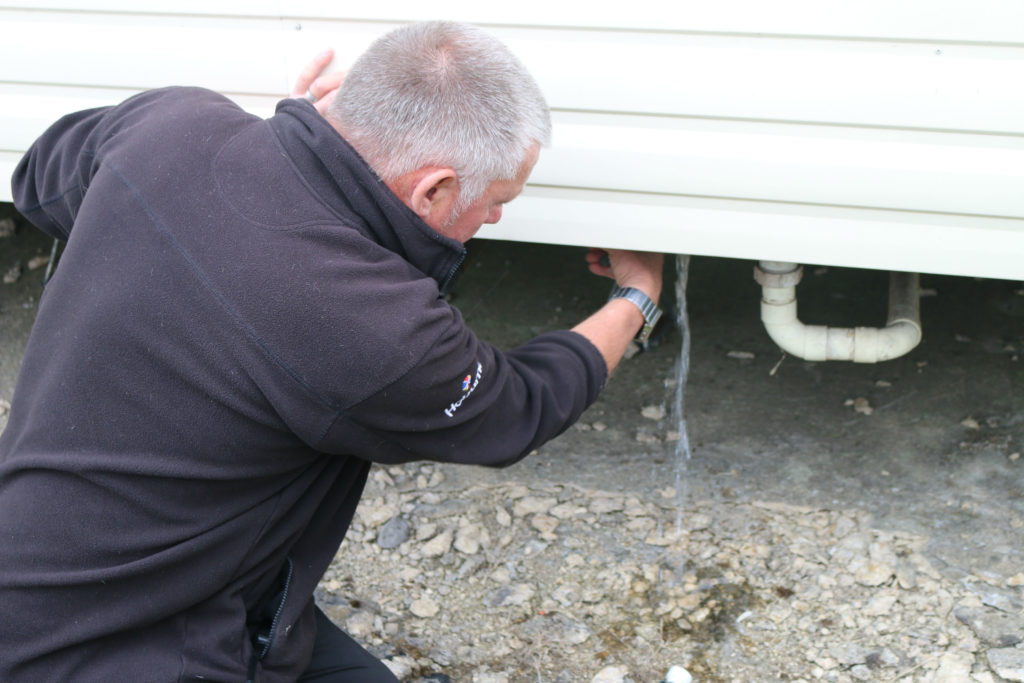
The process of preparing your holiday home for the winter, including draining down, disconnecting services, avoiding damp, and securing the property.
Wraparound seating
Fixed corner lounge seating, maximising space and providing a sociable layout.
Have we missed anything?
There’s plenty of holiday park and static caravan lingo out there! If you think we’ve missed an important term that could help others, let us know in the comments below and we’ll update our glossary.




What is best for the decking to be water proof and anti slip ?
Hi Sheila, see our guide to decking here: https://www.leisuredays.co.uk/news/a-guide-to-holiday-caravan-decking-10690